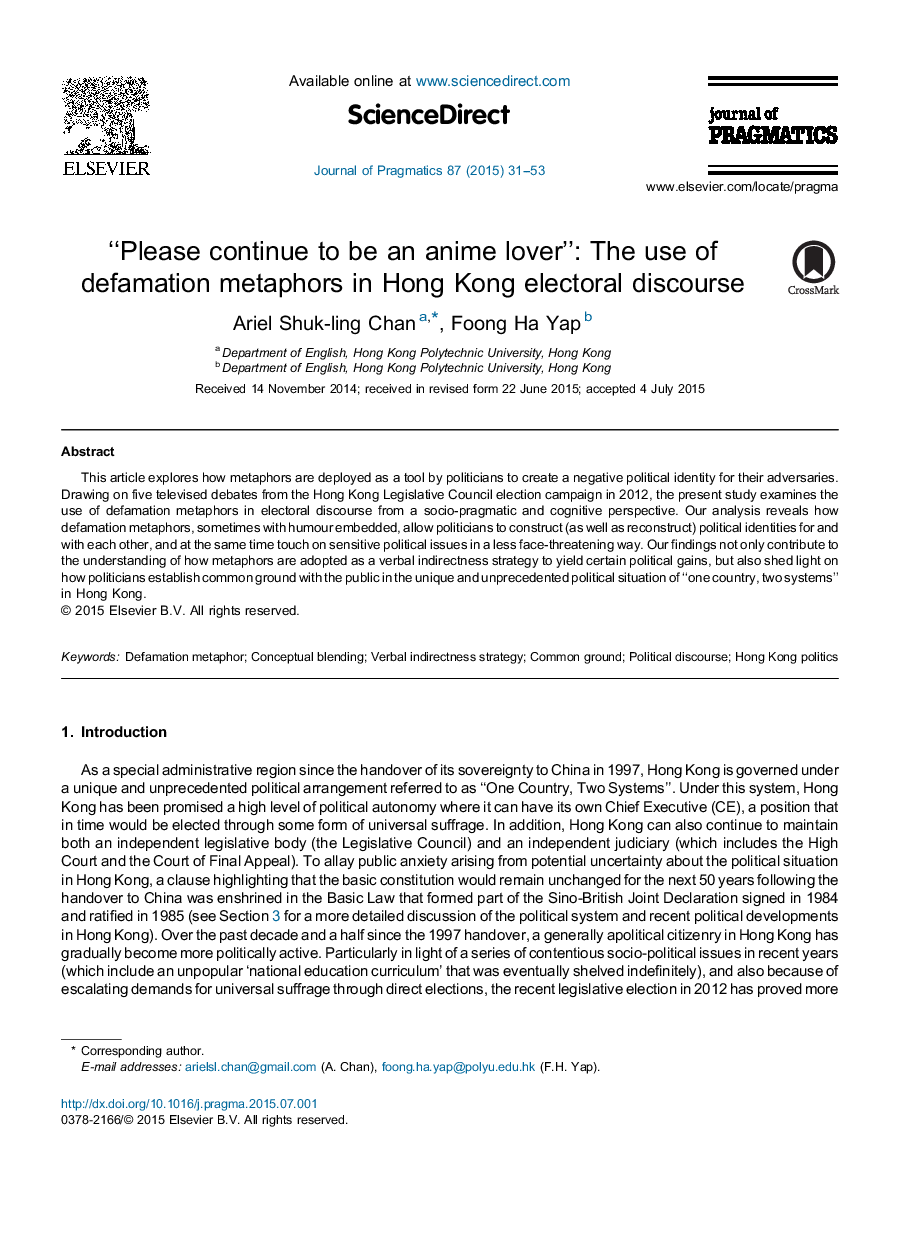| Article ID | Journal | Published Year | Pages | File Type |
|---|---|---|---|---|
| 932516 | Journal of Pragmatics | 2015 | 23 Pages |
•We examine three defamation metaphors in Hong Kong political discourse.•Defamation metaphors allow politicians to touch on sensitive issues in a less face-threatening way.•Defamation metaphors are used as image-shaping tools to construct negative political identities for one's rivals.•The interpretations of these political metaphors are fluid and often subject to negotiation among politicians.•Metaphor is also used as a verbal indirectness strategy to establish common ground with the general public.
This article explores how metaphors are deployed as a tool by politicians to create a negative political identity for their adversaries. Drawing on five televised debates from the Hong Kong Legislative Council election campaign in 2012, the present study examines the use of defamation metaphors in electoral discourse from a socio-pragmatic and cognitive perspective. Our analysis reveals how defamation metaphors, sometimes with humour embedded, allow politicians to construct (as well as reconstruct) political identities for and with each other, and at the same time touch on sensitive political issues in a less face-threatening way. Our findings not only contribute to the understanding of how metaphors are adopted as a verbal indirectness strategy to yield certain political gains, but also shed light on how politicians establish common ground with the public in the unique and unprecedented political situation of “one country, two systems” in Hong Kong.
